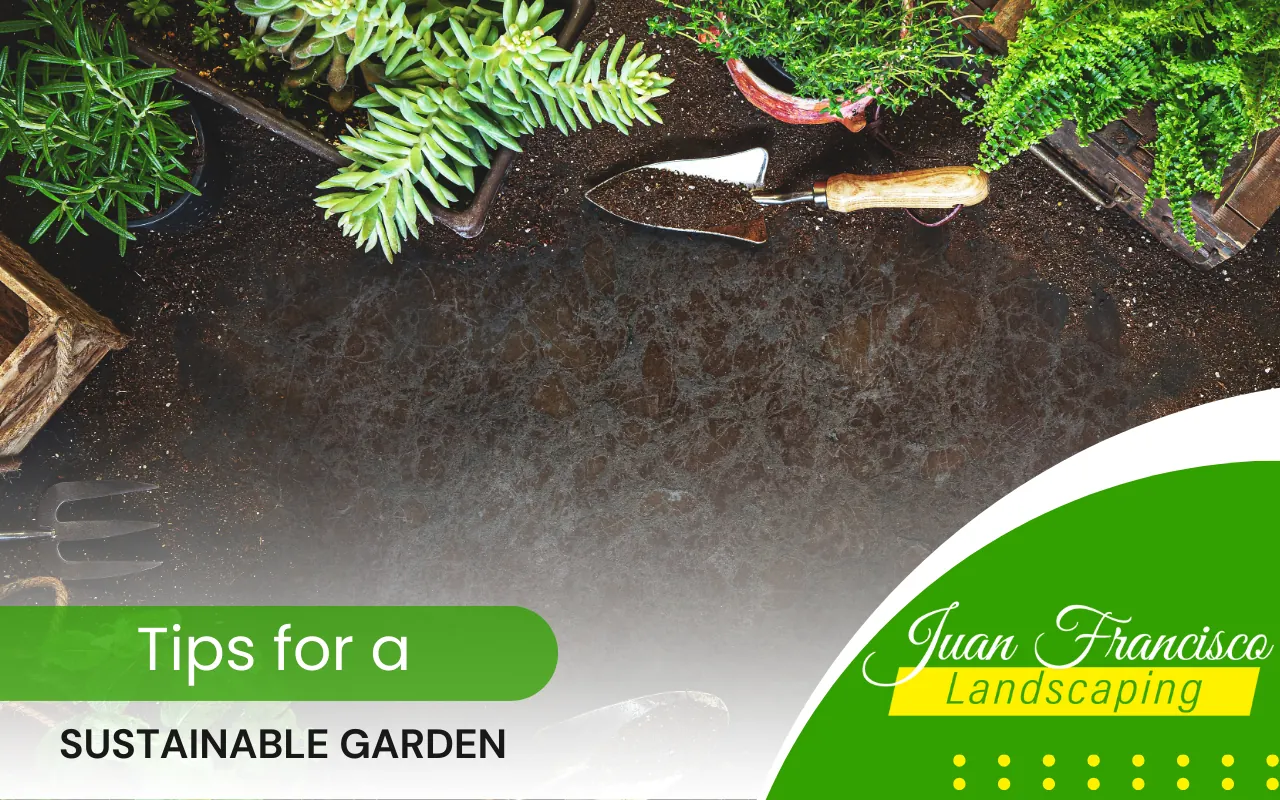
Sustainable Garden Tips for an Eco-Friendly Outdoor Space
Sustainable Garden Tips for an Eco-Friendly Outdoor Space
A beautiful garden should not require excessive water, chemicals, or high maintenance. Fortunately, there are sustainable garden tips that help reduce waste and conserve resources.
By making smart choices, you can create a thriving outdoor space while protecting the environment. This guide provides practical, eco-friendly solutions for saving water, reducing upkeep, or attracting pollinators.
These tips will help homeowners and business owners maintain a healthy, low-maintenance landscape while using fewer natural resources.
Sustainable Garden Tips for a Greener Landscape
Choosing Native and Drought-Resistant Plants
Selecting the right plants can significantly improve garden sustainability. Some plants require less water and adapt easily to local conditions.
- Native plants thrive in the local climate and require minimal care.
- Drought-resistant varieties survive on less water, reducing irrigation needs.
- Perennials return each year, cutting down on replanting and waste.
A well-planned plant selection saves time and conserves water while keeping your garden lush and vibrant.
Conserving Water with Smart Irrigation
Water conservation is essential, especially in areas with dry seasons. Efficient irrigation ensures plants receive the right amount of moisture without excess waste.
- Drip irrigation directs water to plant roots, minimizing evaporation.
- Rain barrels collect and store rainwater for garden use.
- Mulching around plants helps soil retain moisture for longer periods.
By using water-efficient techniques, you can lower utility bills while keeping your garden hydrated.
Improving Soil Health Naturally
Healthy soil is the foundation of a thriving garden. Instead of synthetic fertilizers, natural methods enhance soil quality and promote plant growth.
- Organic compost adds essential nutrients while reducing food waste.
- Mulch layers prevent soil erosion and retain moisture.
- Crop rotation and companion planting improve biodiversity and reduce pests.
These simple steps create a rich, fertile environment that supports strong plant roots and long-term garden success.
Using Sustainable Hardscaping Materials
Landscaping elements like walkways, patios, and borders should also be eco-friendly. Choosing the right materials helps reduce environmental impact.
- Permeable pavers allow rainwater to absorb into the ground, preventing runoff.
- Recycled materials, such as reclaimed wood or stone, reduce waste.
- Gravel paths provide a durable and sustainable alternative to concrete.
Sustainable hardscaping creates a functional and visually appealing outdoor space while supporting natural water flow.
Creating a Low-Maintenance Landscape
Many people want a beautiful garden without hours of upkeep. Low-maintenance designs reduce the need for watering, mowing, and trimming.
- Ground covers like clover or creeping thyme replace traditional grass.
- Raised garden beds prevent soil erosion and improve drainage.
- Artificial turf provides a lush look without the need for watering.
With these solutions, you can enjoy a vibrant landscape without excessive work.
Encouraging Wildlife and Pollinators
A sustainable garden supports pollinators and local wildlife. These small creatures play a crucial role in maintaining plant health.
- Flowering plants attract bees, butterflies, and hummingbirds.
- Birdhouses and feeders provide shelter and food.
- Pesticide-free zones protect beneficial insects and small animals.
Encouraging biodiversity makes your garden healthier and more self-sustaining.
Reducing Waste with Composting and Recycling
A zero-waste approach keeps unnecessary materials out of landfills while benefiting your garden.
- Kitchen scraps like fruit peels and coffee grounds turn into nutrient-rich compost.
- Old containers and pallets serve as creative, upcycled planters.
- Fallen leaves and grass clippings act as natural mulch.
Reusing organic waste reduces costs and improves soil quality at the same time.
FAQs About Sustainable Garden Tips
How do I start a sustainable garden?
Begin with native plants, install drip irrigation, and enrich the soil with organic compost.
What is the best way to reduce water usage?
Collect rainwater, use mulch to retain moisture, and water plants during cooler hours.
How can I make my garden more eco-friendly?
Avoid chemical fertilizers, encourage pollinators, and use recycled or natural materials.
Are sustainable gardens high maintenance?
No, they actually require less watering, fertilizing, and weeding than traditional gardens.
Enhance Your Landscape with a Sustainable Garden
By following sustainable garden tips, you can create a low-maintenance, eco-friendly outdoor space that looks great year-round. Whether you need help with plant selection, irrigation, or hardscaping, professional landscaping solutions can bring your vision to life.
Contact us today for expert guidance and a free estimate from an insured company with over 13 years of experience. Let’s build a beautiful and sustainable garden together.
